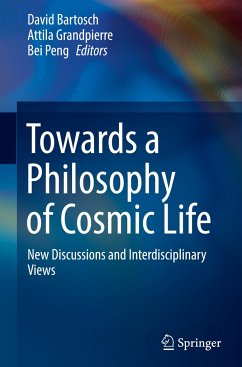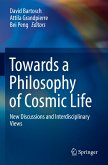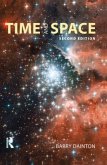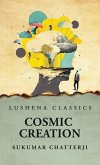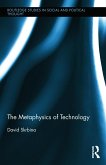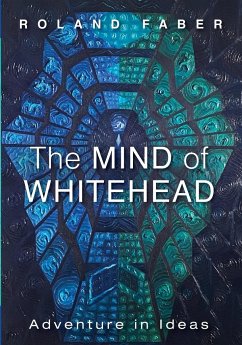Just as the six branches of a snow crystal converge in regular proportions toward their common center, the six contributions to this book point toward a future philosophy of cosmic life. In this sense, this edited volume represents a multidisciplinary and transcultural polylogue of distinguished authors from three continents, which aims to establish highly innovative perspectives and open new frontiers of developing philosophical reflections and scientific foundations for the emergence of a common cosmic consciousness, for an integral ecology, and for a cooperative planetary civilization of humanity.
John B. Cobb, Jr. uses a process-philosophical foundation to describe life as living events expressing novelty and the cosmos as a process of self-enriching and self-evolving "Life Itself." Chandra Wickramasinghe unfolds his scientific and philosophical perspective on cosmic life in twelve successive steps, offering a wide range of arguments and insights that support an up-to-date theory of panspermia. Attila Grandpierre presents the "Cosmic Life Principle" and the comprehensive science based upon it that is inextricably linked to the healthy and cooperative civilization, to the biological laws of nature, to the laws of logic, to the uplifting of the well-being of people and ecological communities. Chunyou Yan introduces the approach of his holographic philosophy, according to which the universe must be understood as a vast living entity, every aspect of which represents life. Bei Peng shows that the proportions of energy meridians in traditional Chinese medicine correspond to musical intervals, and on this basis she demonstrates the analogy of the human body to macrocosmic phenomena. David Bartosch offers an examination of three important systematic foundations for a poly-contextural, transcultural philosophy of cosmic life with roots in Greek, Chinese, South and West Asian, and European traditions of thought.
John B. Cobb, Jr. uses a process-philosophical foundation to describe life as living events expressing novelty and the cosmos as a process of self-enriching and self-evolving "Life Itself." Chandra Wickramasinghe unfolds his scientific and philosophical perspective on cosmic life in twelve successive steps, offering a wide range of arguments and insights that support an up-to-date theory of panspermia. Attila Grandpierre presents the "Cosmic Life Principle" and the comprehensive science based upon it that is inextricably linked to the healthy and cooperative civilization, to the biological laws of nature, to the laws of logic, to the uplifting of the well-being of people and ecological communities. Chunyou Yan introduces the approach of his holographic philosophy, according to which the universe must be understood as a vast living entity, every aspect of which represents life. Bei Peng shows that the proportions of energy meridians in traditional Chinese medicine correspond to musical intervals, and on this basis she demonstrates the analogy of the human body to macrocosmic phenomena. David Bartosch offers an examination of three important systematic foundations for a poly-contextural, transcultural philosophy of cosmic life with roots in Greek, Chinese, South and West Asian, and European traditions of thought.

